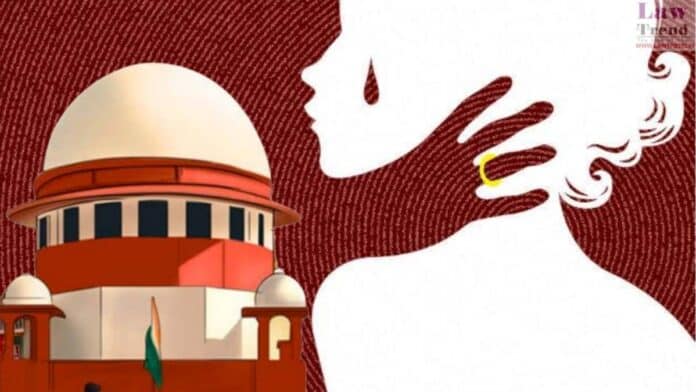On Friday, the Supreme Court sought the Centre’s position on a petition challenging the marital rape exception under the new criminal laws. Chief Justice D.Y. Chandrachud, heading a bench with Justices J.B. Pardiwala and Manoj Misra, issued a notice regarding the petition by the All India Democratic Women’s Association (AIDWA). The hearing is scheduled for July, alongside other petitions seeking to criminalize marital rape.
“This is a constitutional issue and will remain relevant even under the new code,” the bench noted.
The Supreme Court had previously sought the Centre’s response on January 16, 2023, concerning petitions against the Indian Penal Code (IPC) provision that protects a husband from prosecution for forcible sexual intercourse if the wife is an adult. Section 375 of the IPC exempts sexual intercourse by a man with his wife, provided she is not a minor, from being classified as rape.
The new law, the Bharatiya Nyaya Sanhita (BNS), maintains this exception in Section 63. The BNS, along with the Bharatiya Nagarik Suraksha Sanhita (BNSS) and the Bharatiya Sakshya Act, is set to overhaul the criminal justice system starting July 1.
AIDWA’s petition, filed through lawyer Ruchira Goel, also challenges Section 67 of the BNS. This section prescribes a lower imprisonment range of two to seven years for married men who rape their separated wives, compared to the mandatory minimum 10-year sentence for other rape cases.
The petition argues that Section 221 of the BNSS, which requires a court to have prima facie satisfaction of the facts constituting the offense upon a complaint by the wife, facilitates a lenient regime for marital rape.
The petition claims that the marital rape exception violates Articles 14 and 15 of the Constitution by negating a married woman’s consent and perpetuating gender stereotypes. It also argues that the exception infringes on Articles 19(1)(a) and 21, as it compromises a married woman’s rights to bodily integrity, decisional autonomy, and dignity.
One pending plea in the Supreme Court pertains to a split verdict by the Delhi High Court on May 11, 2022. Justice Rajiv Shakdher favored striking down the marital rape exception, calling it “unconstitutional,” while Justice C. Hari Shankar upheld the exception, citing an intelligible differentia. AIDWA was also a petitioner in this case.
Also Read
Additionally, a man has appealed against a Karnataka High Court verdict that allowed his prosecution for allegedly raping his wife. The Karnataka High Court ruled on March 23, 2022, that exempting a husband from allegations of rape and unnatural sex with his wife violates Article 14 of the Constitution, which ensures equality before the law.




